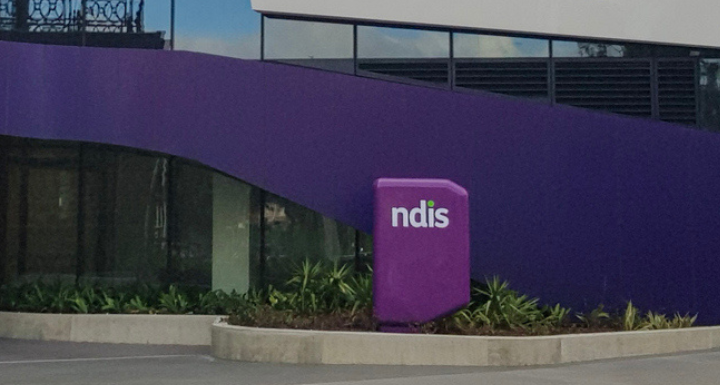Inadequate NDIS pricing short-changes regional Aussies with disabilities
The Loddon Mallee Disability Alliance (LMDA) condemns the NDIS Annual Pricing Review for short-changing people with disabilities, cautioning that quality regional providers could collapse and leave participants stranded unless pricing issues are addressed now.
The recently released NDIS Annual Pricing Review fails to meet the sector’s needs amid rising operational costs. Price caps for everyday supports increased by only 3.19 per cent, while therapies, support coordination, and plan management have remained stagnant for five years.
Despite appearing to boost price caps, a 3.75 per cent rise in the disability sector award wage effectively translates the changes to a price cut, undermining security and stability for NDIS participants and providers alike.
To add salt to the wound, the changes were announced late on the last Friday in June, weeks after they were scheduled, leaving organisations no time to adjust their processes or budgets before they came into effect at midnight on July 1.
LMDA member and Community Respite & Living Services Chief Executive Officer, Leah Taaffe, argued the eleventh-hour pricing announcement ignored escalating operational costs in today’s economy, risking market failure in regional and rural areas.
“This decision cuts funds for disability services just as operating costs rise,” Ms Taaffe asserts.
“The government has ignored calls from reputable NDIS-registered providers to rectify known errors and ensure fair pricing that reflects the true cost of delivering quality disability services.”
Ms Taaffe explained the scheme allowed two types of organisations. NDIS-registered providers meet strict standards, undergo regular audits, and bear significant registration and compliance costs, while non-registered providers do not, resulting in varying quality, safety, and accountability.
“NDIS-registered providers are being punished by the rise of unregistered providers who face minimal oversight but can charge the same rates. These providers often do not pay award wages, lack proper checks and balances, and compromise participant safety,’ Ms Taaffe said.
“This situation forces organisations to either cut costs by reducing staff and compromising safety to stay viable or continue providing underfunded services until they collapse. Either way, people with disabilities and their families lose.
“Furthermore, lumping in long-standing NDIS-registered providers with these fly-by-nighters is simply political point-scoring that tars all providers with the same brush to justify clawing back costs.”
The recent State of the Disability Sector report by peak body National Disability Services further underscores these concerns, revealing that 34 per cent of NDIS providers reported losses in the previous year, with just 18 per cent breaking even – marking the worst fiscal year since the report’s inception.
Fellow LMDA member and Lifely Chief Executive Officer, Janette Martin agreed, highlighting further disparities threatening provider viability in country communities.
“Regional and rural NDIS participants will suffer most without a fairer pricing model,” she said.
“Regional providers face unique challenges, such as rising travel costs, staffing shortages, and the responsibility to deliver unfunded crisis and coordination services in underserved country areas, that NDIS pricing does not consider.
“We face the real possibility of cutting essential services that people with disabilities rely on, with no reasonable alternatives,” Ms Martin warns.
“Our alliance members serve some of the state’s most vulnerable families. If just one or two providers close their doors, it will create a ripple effect, straining all disability providers and impacting our overburdened health services.
“This could result in a dire situation where the local sector struggles to support people in crisis, leading to service gaps and risking severe consequences for the most at-risk.”
LMDA calls on parliamentarians in the Loddon Mallee and beyond to champion disability needs in regional Australia and push for an independent NDIS pricing review.
The alliance also urges residents to write to MPs to show their support for a fairer, sustainable NDIS in regional Australia.
Media resources
Media Release: Loddon Mallee Disability Alliance Condemns Inadequate NDIS Pricing Review
Fact Sheet: Loddon Mallee Disability Alliance
Case study: The Human Cost of Insufficient NDIS Funding – A Bendigo Woman’s Story
About the Loddon Mallee Disability Alliance (LMDA)
The Loddon Mallee Disability Alliance (LMDA) unites NDIS-registered, not-for-profit disability service providers operating in the Loddon Mallee region to advocate for a better NDIS and address issues highlighted by the NDIS Review and Royal Commission into Violence, Abuse, Neglect and Exploitation of People with Disability.
Through collaboration, the alliance champions the needs of people with disabilities and aim to influence policy to ensure more equitable access to quality support services for regional and rural communities.
Member organisations
Regional coverage
The Loddon Mallee region includes the following local government areas in Victoria.
- Rural City of Mildura
- Buloke Shire
- Greater Bendigo
- Campaspe Shire
- Central Goldfields
- Loddon Shire
- Mount Alexander Shire
- Rural City of Swan Hill
- Gannawarra Shire
Several local government areas in New South Wales and South Australia border the Loddon Mallee region, with many residents relying on services located there.
- Wentworth Council, NSW
- Balranald Council, NSW
- Murray River Council, NSW
- Renmark Paringa Council, SA
- Loxton Waikerie Council, SA



